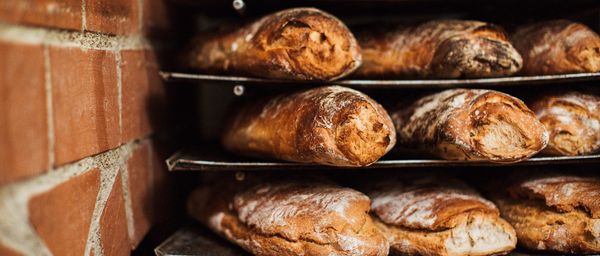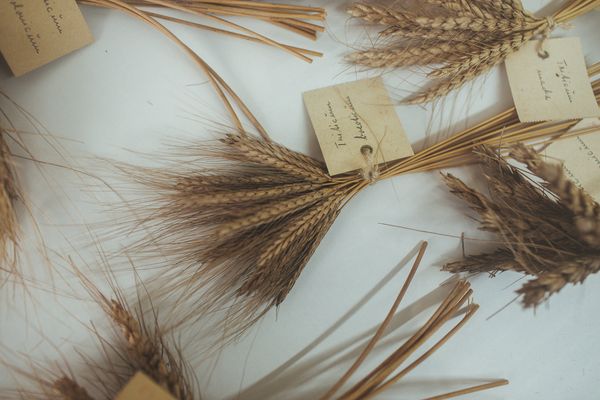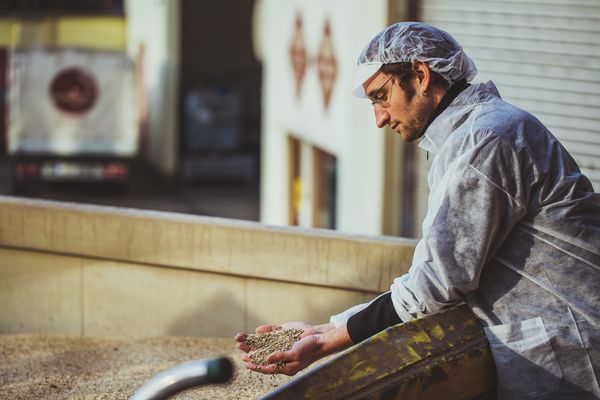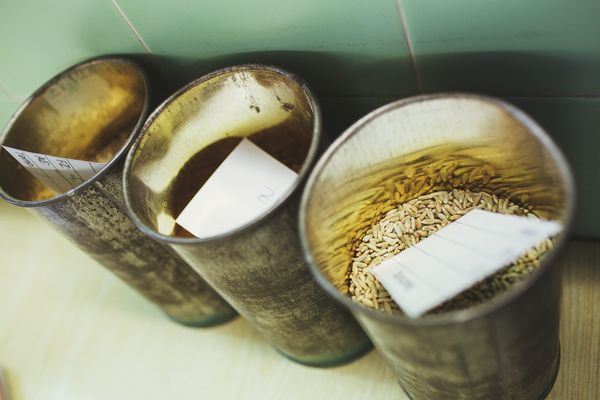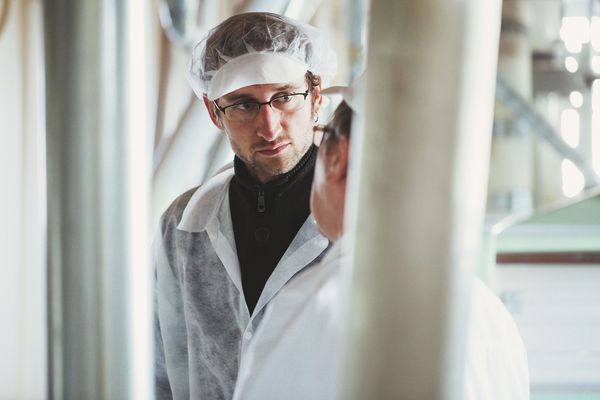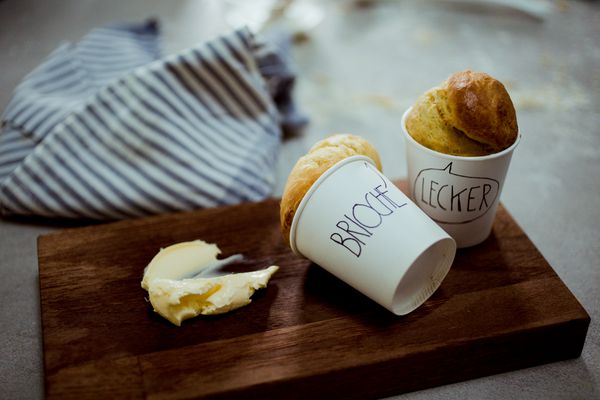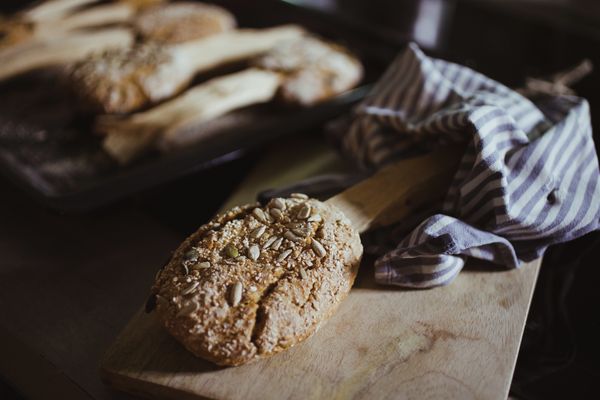Biscuits, wholemeal rolls, pretzel products, Danishes, and all different types of bread – everything needs a special dough. There can be tremendous differences between the various types of dough, both in terms of ingredients as well as the consistency. Wheat doughs can be kneaded, wholemeal doughs are made very soft and can never be mixed by a machine. They can only be mixed, or stirred together, by hand. The dough rests for a long time so the grain can absorb the water. The preliminary result is liquid that you cannot shape it by hand. The dough is scooped into baking pans and baked immediately.
German Kitchen Story
For the love of the loaves
Germans love bread. Yet, these days, bread seems to be mainly found shrink-wrapped on supermarket shelves, robbing its consumers of the truly wonderful sensory experience of biting into a piece of bread, still warm from the oven with a crisp crust. This is the kind of delicacy produced by master baker Fridolin Artmann. He demonstrates why getting the best out of the dough has a great deal to do with passion and dedication.
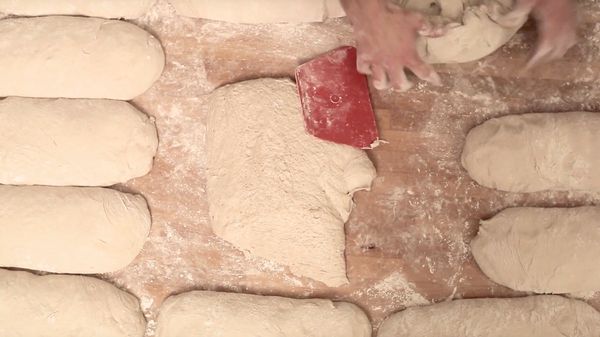
Delicous Bread: All Made By Hand
Master baker ,Fridolin Artmann, has his own ideas about perfect bread. In his "Brotraum" (Bread Room) in Munich, he produces extraordinary baked goods. His recipe for success? Never compromise on ingredients - and do as much by hand as possible.
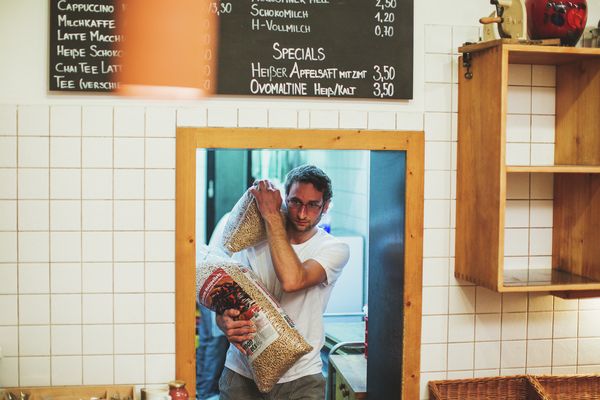
Bread starts going into the oven at 3:30 a.m.
He gets up when others are going to bed. Every night he takes the tram to Schwabing and then walks a few meters from the station to his bakery, which becomes a retail shop during the day. At 1:00 a.m., when the night is just getting started in Schwabing, the work day is just starting for Fridolin Artmann as he starts working on his first batches of dough.
“I first work on the different types of dough so they have enough time to rest”
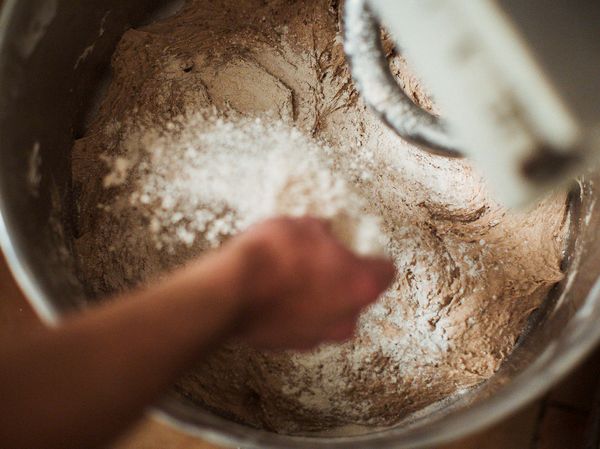
The true secret to flavour is a detail that sounds insignificant: the water.
Many large bakeries use little water when making dough because it is easier to process in machines. “In my opinion, a firm bread without much water is not able to develop the same flavour as the bread I bake in a wood-fired oven,” explains Fridolin Artmann.
Bread from a wood-fired oven is Fridolin Artmann’s favourite kind.
Bread baked in a wood-fired oven is completely different. The loaves are big and weigh 1.5 kilograms. They are made of wheat flour mixed with a bit of rye flour, and when the loaves are cut, the bread is moist and light. Bread just like out of a picture book. Bread from a wood-fired oven is Fridolin Artmann’s favourite kind. Why? “I generally think it is the best way to bake bread. The dough is mixed and then intensively kneaded – and then placed in a tub,” says Fridolin Artmann. “The dough rests for at least two hours and sometimes as long as three hours. Afterwards, it is tipped out of the tub onto the work table.” But be careful! The most important thing about wood-oven-baked bread is letting it rest. The loaves are gently shaped by hand just before baking. “You have to be very careful about knocking back the dough. You have to handle it very gently, you cannot pull it or rip it. It needs to stay pliable.” Afterwards the loaves go into the oven immediately without any further proving.
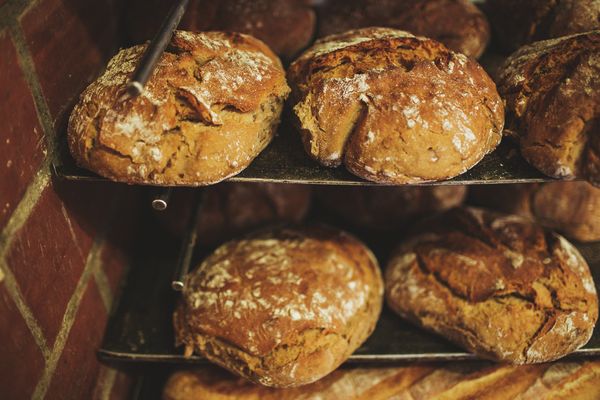
Tips from a master - baking in your own oven:
“preheat the oven, as hot as it will go,” says Fridolin Artmann. “Set it to the highest temperature and bake the bread at that temperature for at least ten minutes to form the crust, if possible at a temperature of 260 degrees Celsius or higher. Afterwards, reduce the temperature to around 200 degrees Celsius, depending on the type of bread, and continue to bake for up to an hour.”
There is no time to talk right now.
The croissants still have to go into the oven. The store opens at seven, in just an hour. It is high time to roll out the dough. Over and over again. Flatter and flatter. In the end, the dough is nearly one and a half meters long and a half meter wide – only then can the butter layer be added. Then the dough is folded up like a bed sheet, over and over again. And then rolled out once again, divided into small rectangles, and finally rolled into croissants one by one. Fridolin Artmann yanks open the door to the oven and uses a peel to retrieve a dozen multigrain rolls from the oven; they spill into baskets. Then the croissants can go into the oven. “Now the temperature isn’t as hot as at it was at the beginning of the night, when we bake the heavy loaves of bread.” Door open, croissants in, door closed. He claps his hands. A cloud of flour. A brief pause.

Who is Fridolin Artmann?
The master baker is in his early thirties – and has already been baking for half his life. He started at age 16. He first worked as an apprentice in large operations, then as an employee, and finally in his own bakery. At the age of 24, Fridolin Artmann founded his bakery “Brotraum” in the middle of Schwabing, less than a hundred meters away from Münchner Freiheit, one of Munich’s busiest intersections. His profession will not make Fridolin Artmann rich. But he has found his purpose. “From the very beginning I was driven to bake really good bread – my way.”
“You wanted to know what makes for a good quality bread?”
Yes. And whether he might be willing to share his recipe for success? Fridolin laughs. “There is no secret to it at all. As a baker, you cannot ever believe that there is a perfect recipe that never has to be changed. That simply doesn’t exist. Every year the flour is a little bit different. That is why I always stay in touch with the organic mill in Landshut where I buy my flour.” He maintains an ongoing relationship with the miller of the Meyer mill which produces flour in precisely the quality that Artmann wants. “Milling grain into flour: That is a science in and of itself.” Fridolin Artmann takes a handful of flour from a sack and rubs it between his fingers. “There is no ‘optimal’ flour. If it was dry and hot in the late summer, then the flour tends to absorb more water. I have to be aware of that when I bake my bread. I need to be able to respond to the flour to ensure that I can work the dough accordingly. Only then will my bread be good.”
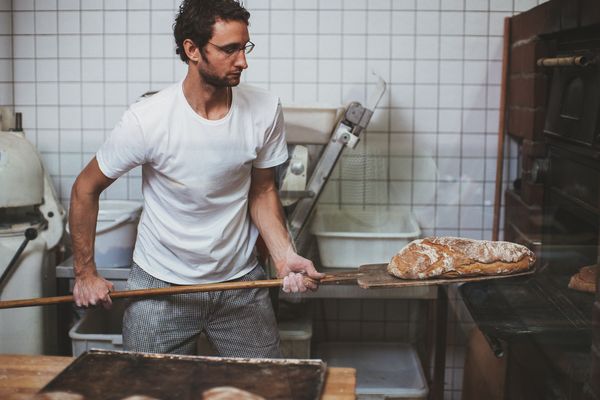
“I bake around 18 tons of bread every year. That is a fair bit.”
It is five thirty in the morning. The city is still asleep. Fridolin Artmann slides the last loaves of bread of the night into the wood-fired oven. When he claps his hands, a cloud of flour is highlighted in a beam of light from the ceiling. Outside the window, snowflakes drift down to the asphalt. “18 tons” and “a fair bit” – these are clear understatements. Above all, however, it is an attribute personified by the 32-year-old “passionate baker,” as Fridolin Artmann calls himself.
“I want to get the best out of the dough!”
Compared to state-of-the-art industrial bakeries, Artmann’s production volume is laughable. If bread is produced on a conveyor belt, 18 tons can easily be baked in just half a night. But for Fridolin Artmann, good baking means something else entirely. He wants to feel the dough as he kneads it, check it with his own hands as it proves, and be able to respond as needed to the characteristics of the flour – changing the amount of ingredients or the position of the bread in the oven if necessary. “I want to get the best out of the dough,” he says. “For me, that is what baking is all about!” Fridolin Artmann considers his profession to be a craft. Nothing would be more foreign to this man than producing bread on a conveyor belt.
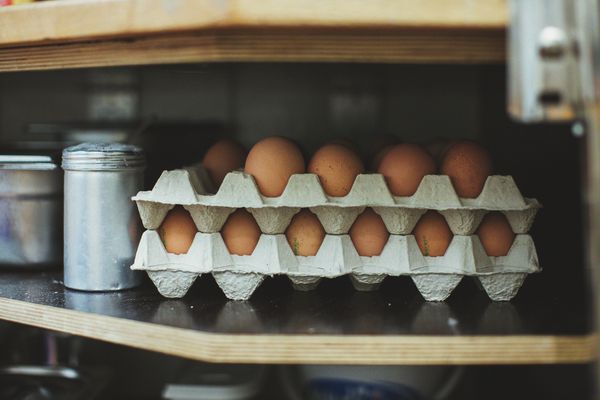
No compromising on ingredients.
That is the motto of the organic baker. The yeast comes from an organic production in Passau; he purchases his eggs from Bicklhof, just outside of Munich, the milk comes from Berchtesgadener Land, and the water comes from Mangfall valley (which actually sounds more spectacular than it is: it is the normal tap water in Munich – but it is the best of any large city in Germany).
Only one thing counts for him: the quality of the bread.
Fridolin Artmann is a man with a quiet voice – but powerful forearms and true baker’s paws. With a single glance, you can immediately see that his hands have rolled out many thousands of loaves. He enjoys standing in his bakery that measures just 30 square meters. This is a bakery where every move is just right, every sack of flour sits in its assigned spot, and each of his employees knows exactly what to do when it comes to baking baguettes, wholemeal bread, multigrain bread rolls, and pretzels. Night after night he stands here with his journeymen – “I call them ‘journeymen,” because ‘assistant’ just doesn’t sound right to me,” says the master baker. For Fridolin Artmann, what counts is not the size of an operation or the volume of production, and most certainly not abstract factors such as production efficiency or cost minimisation.
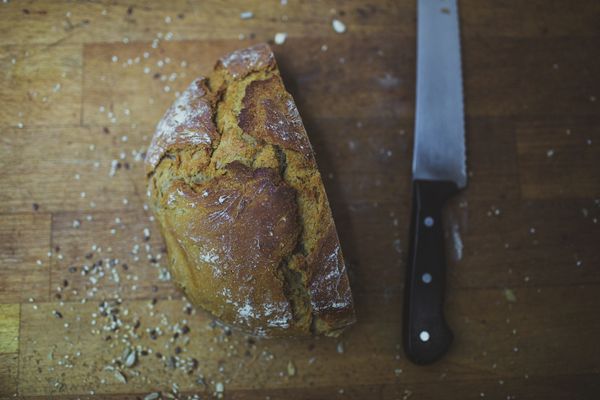
Tips from a master - storing bread properly:
Fridolin Artmann says: “Storing bread depends in large part on your individual taste. If you’re a fan of crusts and you want your bread to still have a firm crust the next day, then you should simply leave the loaf, cut side down, on a wooden cutting board. If the bread is still warm when you purchase it, then leave the bag open and when you get home, immediately remove the bread from the bag to let it cool thoroughly. If you prefer bread that is moist, then wait no longer than the next day to place it in a plastic bag for storage.”

